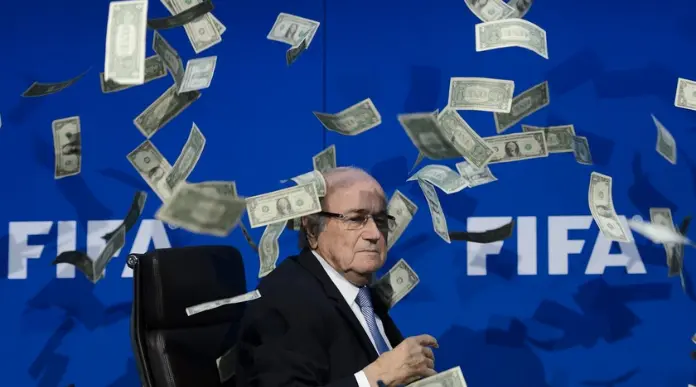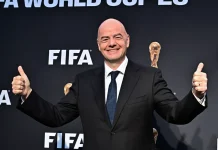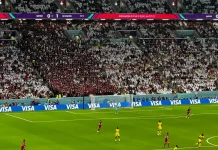In 2025, the global influence of FIFA extends far beyond the football pitch. As the primary rights-holder and orchestrator of major international tournaments, FIFA commands a massive media empire that shapes public opinion across continents. While the organization promotes football’s unifying spirit, it also stands accused of manipulating narratives to align with political interests. From North America to Southeast Asia, FIFA’s expanding media reach increasingly intersects with sensitive political contexts, raising pressing questions about transparency, editorial freedom, and ethical responsibility in sports journalism.
FIFA’s Media Monopoly and Global Reach
FIFA’s central role in distributing broadcast rights for events like the World Cup and the Club World Cup gives it unparalleled control over how global football is presented to billions of viewers. As the custodian of football’s most valuable content, FIFA determines not only who can show the matches but also under what conditions. This influence allows the organization to shape global narratives — often subtly — through selective access, editorial framing, and strategic partnerships with broadcasters.
Recent rights tenders in Southeast Asia for the 2025 FIFA Club World Cup illustrate FIFA’s ambition to deepen its media presence in emerging markets. These agreements go beyond economics. By choosing preferred media partners and controlling the flow of content, FIFA can subtly guide the political and cultural framing of its events, further solidifying its position as a global opinion-shaper.
Tensions with Independent Journalism
Despite its expansive media infrastructure, FIFA faces ongoing criticism for its restrictive policies toward independent press access. In May 2025, the News Media Coalition issued an open letter condemning the organization’s handling of press accreditation and access during key tournaments. The group cited systemic delays and unexplained denials that prevented reporters from covering events freely and comprehensively.
This friction points to a growing divide between FIFA’s commercial media interests and the fundamental principles of journalistic freedom. By limiting access and curating the scope of coverage, FIFA risks narrowing the range of voices and perspectives that reach the global audience. This undermines transparency and accountability, both of which are essential in scrutinizing the decisions and relationships that underpin international football.
Politics on the Sidelines: The Trump-Infantino Nexus
FIFA’s media broadcasts increasingly serve as stages for political theatrics. One of the most prominent examples in recent years is the close relationship between FIFA President Gianni Infantino and former U.S. President Donald Trump. Their public appearances and mutual endorsements have drawn criticism for blurring the line between sport and statecraft. Infantino’s praise of Trump and his presence at political rallies during past tournaments were widely broadcasted, raising alarms about the use of football’s global appeal for domestic political gain.
These instances highlight how FIFA’s broadcast platforms — reaching billions of viewers worldwide — can be leveraged to convey political messages, often without contest or context. The optics of such relationships are powerful. They risk turning football into a tool for legitimizing contentious political figures, particularly when critical journalism is sidelined.
The Saudi Connection: Sportswashing and Media Strategy
FIFA’s evolving commercial partnership with Saudi Arabia represents another intersection of sport, media, and politics. Saudi investments in football — from sponsorships to hosting rights — are part of a broader strategy often labeled “sportswashing,” where states use high-profile events to deflect from human rights concerns. FIFA’s willingness to deepen these ties, despite international criticism, reflects the complex motivations behind its media and commercial strategies.
Broadcast coverage of events in Saudi Arabia frequently avoids scrutiny of the country’s domestic policies. Instead, narratives focus on modernization, economic reform, and global engagement. This curated storytelling, enabled by FIFA’s control over media access, paints an incomplete picture that favors state interests over balanced reporting. For viewers, this can distort perceptions and diminish awareness of systemic issues hidden behind football’s glamorous façade.
Sanitized Storytelling in Controversial Host Nations
FIFA’s media practices also affect how tournaments in politically sensitive countries are portrayed. Past and upcoming events in Qatar and Saudi Arabia, for instance, have highlighted a pattern of sanitized broadcasts that prioritize positive narratives. While official footage showcases infrastructure, fan engagement, and cultural celebration, critical voices — particularly those addressing labor rights, gender equality, and freedom of expression — often receive minimal exposure.
This selective narrative-building shapes public opinion in subtle but impactful ways. When viewers consistently encounter polished, conflict-free portrayals, awareness of underlying injustices diminishes. FIFA’s influence thus extends beyond entertainment, playing a part in the soft power dynamics of host nations seeking to reshape their global image.
The Role of Emerging Markets and New Media Frontiers
As FIFA expands its media reach into emerging markets, including Southeast Asia and parts of Africa, the political implications grow. These regions represent new frontiers for audience growth, advertising revenue, and political influence. The way football is presented — and the partners chosen to do so — carries cultural and political weight.
In many of these markets, state-controlled media remains prevalent, increasing the risk that FIFA’s content will be used to promote nationalistic or regime-friendly narratives. The absence of strong independent press ecosystems further complicates efforts to ensure balanced coverage. Consequently, FIFA’s global media strategy must contend with the challenge of aligning commercial growth with ethical broadcasting standards.
Calls for Reform and Greater Transparency
Advocates for press freedom and sports ethics continue to urge FIFA to reform its media operations. Key demands include streamlining and democratizing the press accreditation process, increasing transparency around media partnerships, and enforcing standards for editorial independence. These measures are essential not only for journalists but for the integrity of the narratives reaching the public.
FIFA has expressed a commitment to human rights and media engagement, but critics argue that action has lagged behind rhetoric. Greater oversight — perhaps through an independent media ethics board or third-party audit — could help align FIFA’s operations with its stated values. Without such steps, the perception of bias and political favoritism will persist.
Conclusion: Reclaiming Media Neutrality in Global Football
FIFA’s control over global football broadcasts is a powerful tool capable of uniting people across cultures and continents. Yet this same power, when left unchecked, can be harnessed for political agendas and narrative manipulation. As FIFA prepares for future tournaments and seeks to expand its media empire, the organization faces a critical choice: maintain the status quo of selective storytelling or embrace reforms that prioritize transparency, journalistic freedom, and editorial neutrality.
The beautiful game deserves narratives that reflect its diversity and complexity — stories that celebrate its highs while also confronting its shortcomings. In 2025, that responsibility rests squarely with FIFA. Whether the organization can rise to the challenge will determine not only the future of sports journalism but also the global perception of football itself.













